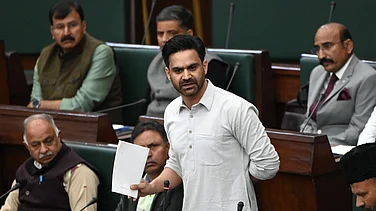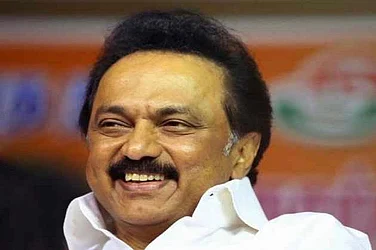The Registration of Births and Deaths (Amendment) Act, 2023 that allows the use of a birth certificate as a single document for admission to an educational institution, issuance of a driving licence, preparation of voter list, Aadhaar number, registration of marriage or appointment to a government job will come into force from October 1. The Bill aims to create a state, and national, level database of registered births and deaths.
For the first time since its inception in 1969, a Bill to amend the 54-year-old law was passed by Parliament and has got the assent of the President of India. While the government claims that the Bill will allow greater access to free ration and other subsidies for citizens and weed out duplication in the present database, privacy activists have expressed concerns that the creation of the database may leave out sections of the population from the list.
What does the Registration of Births and Deaths (Amendment) Bill, 2023 state?
The Registration of Births and Deaths (Amendment) Bill, 2023 aims to create a centralised database for deaths and births to help in transparent delivery of public services and to update other databases. The national database may be made available to other authorities preparing or maintaining other databases, including population register, electoral rolls, ration card, and any other national databases as notified.
The Act also provides for the appointment of a Registrar-General, India who may issue general directions for registration of births and deaths and will maintain a national database of registered births and deaths.
How will it impact common people?
While tabling the Bill, Union Minister of State for Home Nityanand Rai said that the law regulating births and deaths had not been amended since 1969 and with technological advancements, there was a need to make the law more citizen friendly. The minister made a case for digitising these databases.
The minister also said that the Bill will ensure efficiency and transparency in delivering social benefits to the citizens. It aims to curb duplication and errors in the nation’s present databases.
What are the concerns?
Activists say that the proposal to link Aadhaar details of the parents and the person reporting the birth to the birth certificate of the child violates one's Right to Privacy. In the case of the birth certificate, the person reporting the birth or the informant could be doctor in-charge of a nursing home, manager of a hotel or a place where a child is born. Once this Bill comes into effect, the Aadhaar details of these informants will be linked to the child's Aadhaar. This may violate these officers’ right to privacy disproportionately, as PRS India notes.
Another violation of privacy that the research noted was with regards to linking of a person's Aadhaar across databases. As mentioned above, the national database for births and deaths will be allowed to be shared with authorities maintaining other databases (such as electoral rolls and ration cards). But such sharing is done without the person's consent.
The Bill also seeks to make birth certificate the sole conclusive proof of age, which would then be used to access other benefits like voting, ration, admission into schools etc. So if a person does not have a birth certificate, they will not be able to vote, or apply for admission to school, marriage, or a government job. "There may be instances where a child’s birth was registered but they ran away from home, or lost their parents in a natural disaster. If such a child wants to enrol in school, determining their age may be difficult," PRS ressearch notes.


























